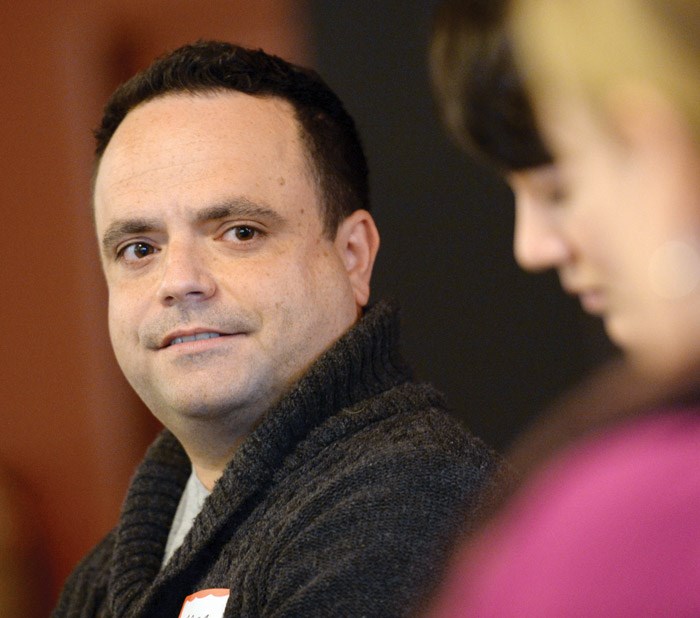A provincial advocacy organization called on Prince George residents to help re-think the Ebola crisis response and re-evaluate ways B.C. communities can make an international impact.
The British Columbia Council for International Cooperation used the current epidemic as a framework to examine what the province's role has been, and what participants at Tuesday's round table think it should be.
"The idea is that we're really looking at the bigger picture," said Deborah Glaser, a senior policy analyst with the coalition meant to represent international development organizations. "We need to make sure there's a strategy in place for us to be able engage in our work."
The roundtable at Books & Company's Art Space brought out a dozen to the community conversation.
Many said the system of interested organizations is too fragmented and the links between local, provincial and federal support systems are disconnected.
Although foreign affairs was widely accepted as the purview of the federal government, the consensus at Tuesday's table was that B.C. be a factor as well.
Greg Thomas-Reilly, who has a background in infectious diseases, went to Liberia to provide public health training and support for the country that is one of the hardest hit.
"I think that B.C. has a role but I think it's advocating and supporting federal government," which he said has "reneging on a lot of its responsibilities globally."
"There will be another Ebola," he said, adding Canadians need to start caring beyond their borders, focus less on the perceived local impact. More than 8,600 have died from the disease in West Africa.
"I think we've failed West Africa and Africa in general," Thomas-Reilly, who is on a six month leave from his post as a UNBC assistant professor of nursing. "We will fail Africa miserably and many other countries in the future because we look at it constantly as what's in it for us."
Thomas-Reilly said Canada and the province needs a better inventory of public health professionals that can be sent for support in times of international crises. Aid can be offered both in funds and professional expertise, he said.
The response should cross sectors too, he said, noting the work of anthropologists and sociologists have helped identify how cultural practices have contributed to the spread. Funeral practices in West Africa often involve families honouring their dead in ways that require their touch.
Chris Opio, chairman of the Northern Uganda Development Foundation, echoed the need for "cultural sensitivity."
"Strong recognition that we live in a global village is important," he said of local involvement, adding "we should be proactive."
Kathy MacDonald, who recently retired from working in public health, said she'd like to see organizations push the province to take a greater part.
"B.C.'s just not there at all," she said. "It always seems to be such a separation from the NGO world and the government world."
MacDonald suggested BCCIC be that umbrella organization to connect the smaller local actors, like the ones sitting at Tuesday's table.
Glaser said that is the goal, the BCCIC wants to represent the voice rather than "be" the voice. Prince George was the first stop in four roundtable events and Glaser said it will gather recommendations and present them to the government officials.
Its goal, too, is to advocate for the return of its provincial funding, which was cut 20 years ago.
Thomas-Reilly said structural barriers aside, provincial aid should be viewed through a moral lens as well.
"There is a moral compulsion for B.C. to be a part of the global community and I think that's a compelling argument to make," he said.



.png;w=120;h=80;mode=crop)